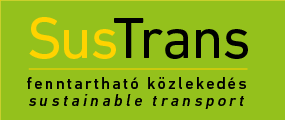Roundtable on the options of energy efficient transport of Bialysztok
25.09.2013
SUMMARY
The meeting was attended by 8 participants.
At the beginning of the meeting, Dariusz Kraszewski, the representative of Zielone Mazowsze, described the project and discussed how road transport affects urban population health. Next, Karol Mocniak presented the expert opinion on the transport system in Białystok and challenges the city must face. He pointed out the problems resulting from the transport development policy of the municipal authorities. This refers in particular to the amount of money the city spends on the road transport development and construction of multi-lane roads in the city, which, in the author's opinion, are unsuitable for the city's spatial, demographic and social structure.
After the presentation the meeting participants discussed its conclusions. Much attention was brought to the difficulties the rail transport covering Białystok region is going through due to insufficient investments and lower frequency of suburban trains. Other issues discussed include fees payable by passengers for taking their bicycles on suburban trains. Warsaw was highlighted as an example of a city, whose dwellers can travel with their bicycles without any additional fees and then move around the city by bike instead of going on foot or by car.
The meeting participants believe that the situation results from the actions taken by the municipal and regional authorities, which are not interested in sustainable transport in the city or region, and instead are greatly focused on individual transport investments.
When trying to find a way to change this situation, the participants emphasised the significance of local government elections to be held in autumn 2014. During the local government elections there will be an opportunity to introduce the issue of sustainable transport to the public debate and the city dwellers will have the chance to initiate discussions on the development directions for the city.
Another conclusion discussed during the meeting and considered a key factor by the participants is the synchronization of regional railway and urban transport in Białystok. This would allow to adjust local public transport to the arrival and departure times of suburban trains.






